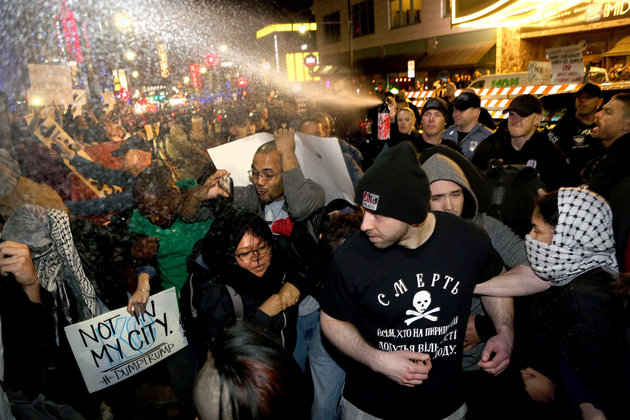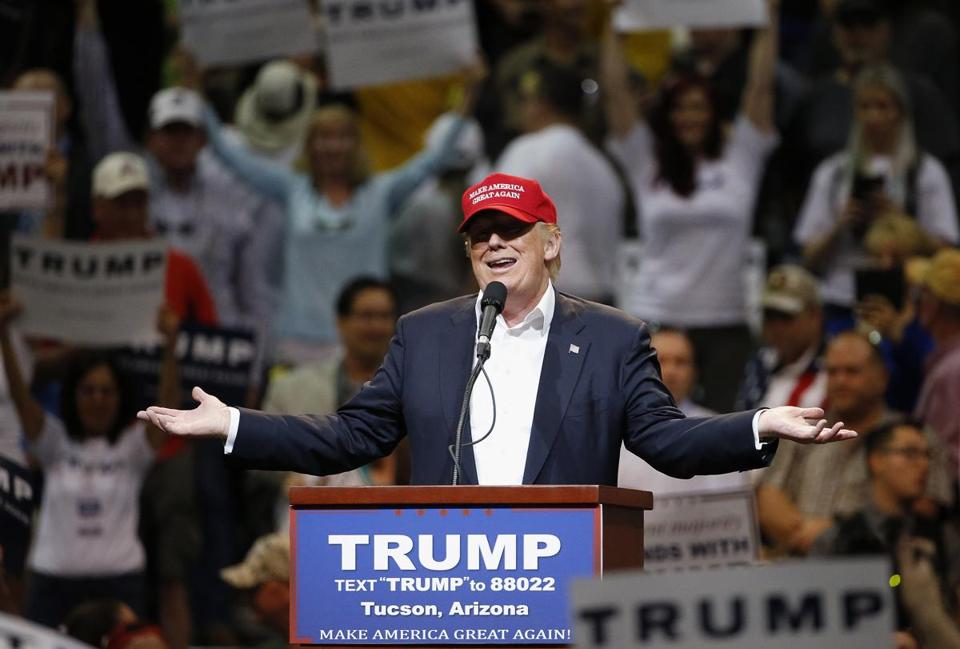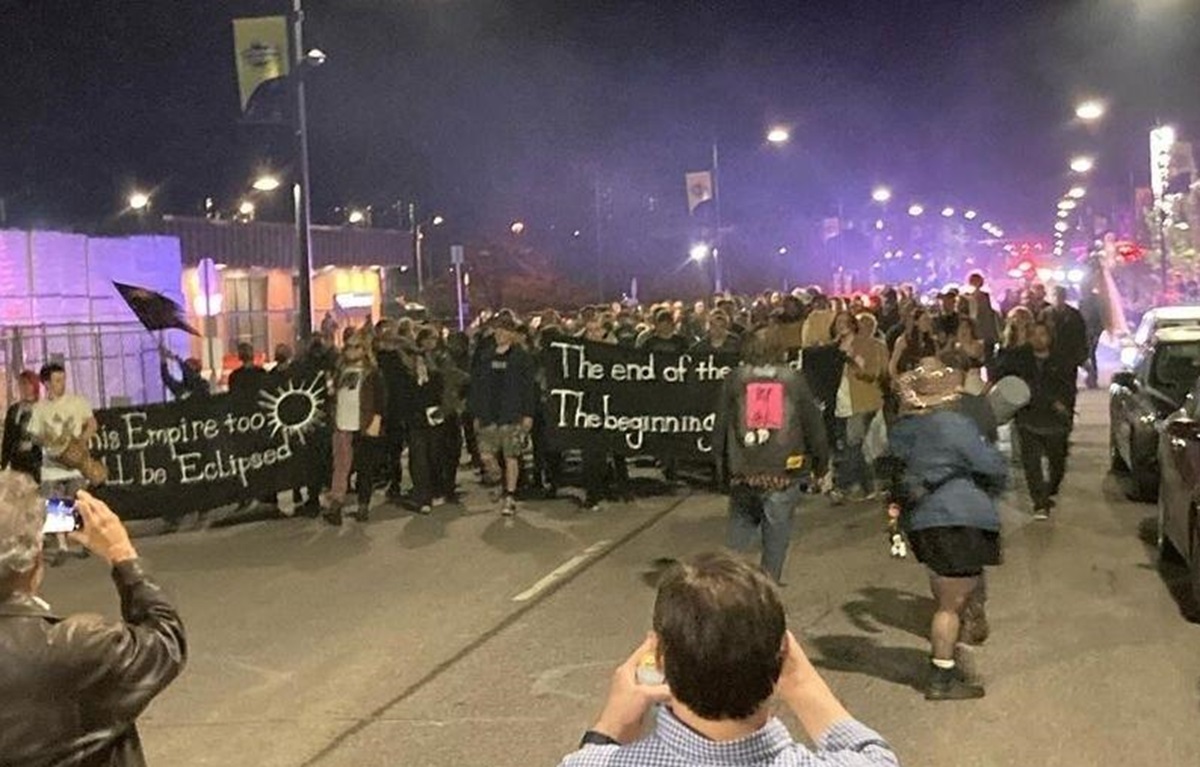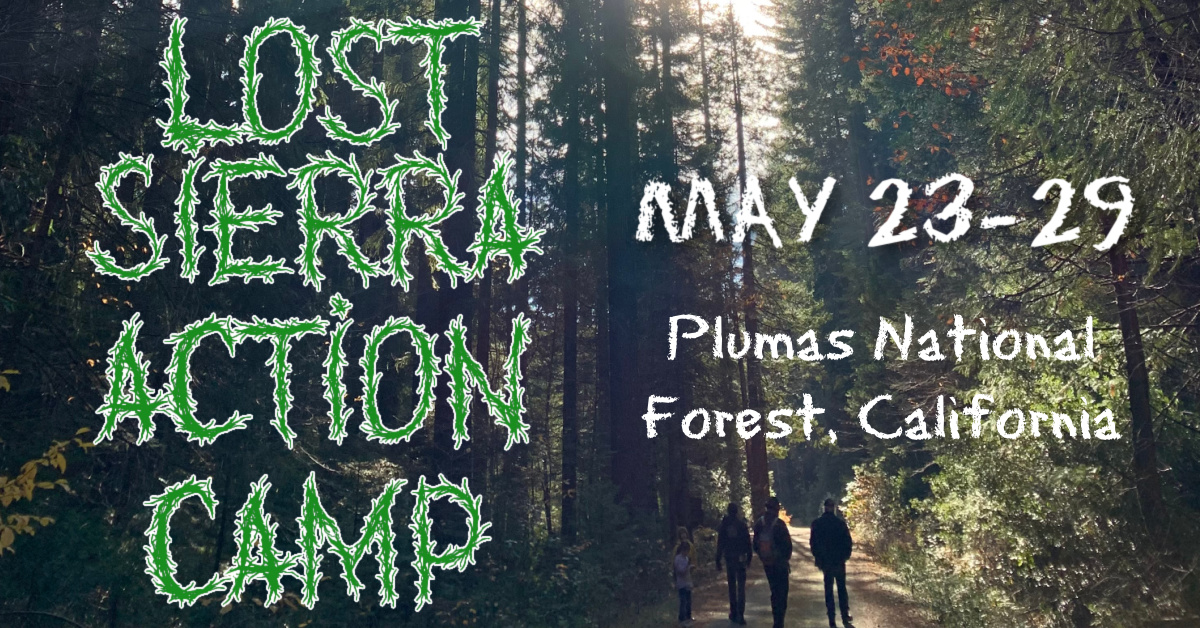Filed under: Analysis, Anarchist Movement, Critique, Featured, Publication, The State, US

Download and Print Here
In the last few months, a tide of popular defiance to the Trump regime has rolled across the country. His ‘peaceful transition’ of power was undermined by rioting in the capitol of the most powerful nation in the world. His racist travel ban was met with airport occupations nationwide, which are likely responsible in part for the ban’s current defeat in the courts. Alt-right speakers and organizing have been consistently disrupted by large, diverse crowds, which have blockaded buildings and physically expelled fascists from the streets.
A common slogan in many of these demonstrations has been, “Love Trumps Hate.” Because we believe this small slogan exposes a much, much deeper fault line in our movement, we wanted to respond to this phrase with the following points.
1. The problem is not individual attitudes and prejudices.
Love and hate are emotions that cannot appropriately be assigned to systems of power. The real problem is structural. It is the police, the law, political parties, and capitalism. It is 500 years of colonialism and anti-blackness and rape culture. None of what Trump is trying to do would be possible if these systems did not exist. What matters about Obama’s deportation of 2.4 million people is not his personal feelings for those folks. What matters is that he deported over 2.4 million people. Put another way, the boss does not exploit his workers because he hates them—he does so because his position in the economy demands it. Individual cops do not occupy and harass black neighborhoods out of personal spite (even if many enjoy it)—they do so because if they were to refuse, they would simply be fired and replaced. Power, freedom, and survival are what is at stake here, not just feelings.
2. We need to stop competing over who is the “real” America.
At every demonstration there are some who declare that the “real” America is all about diversity, inclusion, and other democratic platitudes. That America is “about love, not hate.” America was founded on land stolen by genocide, and its democratic institutions and economy were built on slavery. In other words, Trump absolutely is the real America. Obama’s mass deportations, drone-bombing, police-funding and neoliberal deal-making were all America, too. Obama’s rhetoric about pluralism and inclusion was a smokescreen for the same old garbage. The phrase “Love Trumps Hate” seems to say, “We’ll let you do these things, just please do them nicely.” It’s time to care less about how power looks and sounds and more about what power does.
3. There is nothing inherently wrong with hate.
Hate is a basic human emotion, a raw feeling inextricable from the human experience. Just like anger and violence, hate is not inherently oppressive or liberatory. A white supremacist might hate a person of color, but a person of color might also hate his or her oppression and dehumanization. The cops use violence to break up our demonstrations, but a woman might also use violence to stop a would-be sexual assaulter. It is a childish and simplistic perspective that paints all these emotions and activities as ethically identical. Instead, we should be asking: Does this passion, or this action, serve the interests of the wealthy and powerful, or does it find common cause amongst the marginalized and the dispossessed?
4. Love and hate are not mutually exclusive.
We hate the police because we love our family members and friends who they’ve locked up and stolen from us. Our anger at the powerful and their structures is not to be ashamed of—it is a fuel that drives our struggle for freedom and a more compassionate world. The politics of those who do not claim to feel such anger are suspect, at best.
5. ‘Love’ often does not trump ‘hate.’
Liberals are fond of Martin Luther King, Jr.’s, quote “The arc of the moral universe is long, but it bends towards justice.” This faith in the inevitability of “progress” can lead to a dangerous passivity. The only scraps of freedom, autonomy, or equality that the oppressed have ever experienced, they’ve had to physically fight for on their own terms. We have to stop relying on powers outside our control—nicer politicians, liberal judges, the Constitution, ‘progressive’ corporations—to win this fight, or we’ll find ourselves in this same mess over and over again.
6. It is a mistake to use the term “hate” as a euphemism for something else.
We should always be clear about exactly what it is we’re fighting. We fight against the alt-right and neo-Nazis not because they “hate,” but because they’re white supremacists seeking to preserve the anti-black structure of a society we are seeking to dismantle. It’s also worth remembering that the amount of violence against people of color committed by these groups pales in comparison to that done by the police and prison system. Labeling such organizations as anti-black and white supremacist rather than as “hate groups” helps us to draw the connections between these private groups and the state institutions they support.
As in debates over tactics, debates over slogans usually reflect deeper conflicts over strategy and goals. It is unlikely that the Democrat who seeks a return to the Obama years and the anarchist who seeks an entirely new world will agree on slogans or tactics. We believe that these kinds of conflicts are important and valuable, and that ignoring them in favor of forcing through one shared platform or program would be fruitless and misguided.
Nonetheless, we are confronting the rise of a potentially fascist force in North America, one that could have real lived consequences for millions of us. For us to put up even the most basic obstacles to this regime, we’ll all have to get past one-dimensional moral platitudes about love and hate.






